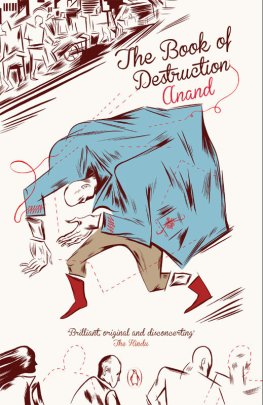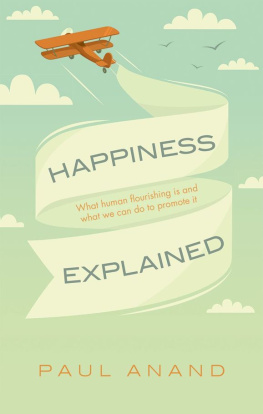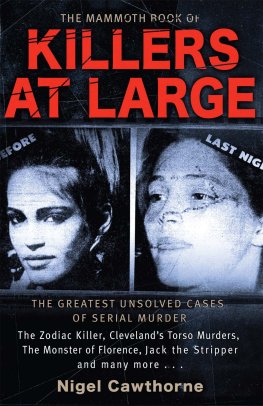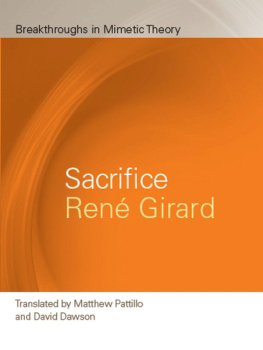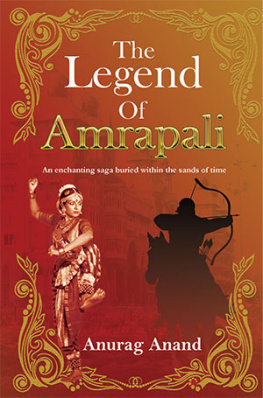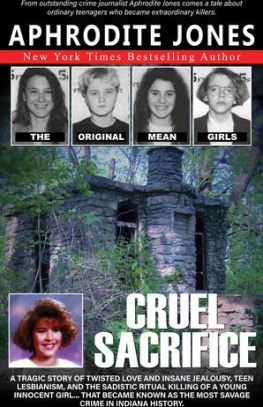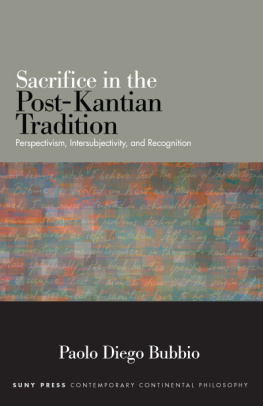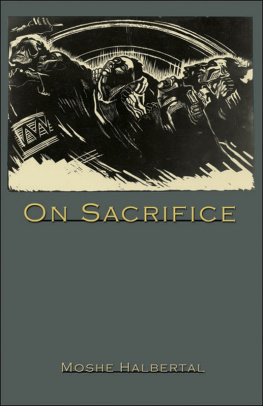Anand is an engineer by profession who has lived and worked in many parts of India. His first novel, Aalkkoottam, was published in 1970. He has since published a number of novels, short stories and studies of philosophical and social interest. His work has received the Sahitya Akademi, Vayalar and various other awards and recognitions. The English translation of his novel Govardhante Yatrakal, published by Penguin as Govardhans Travels, won the Vodafone Crossword Award.
Chetana Sachidanandan is a biologist who works in Delhi. She writes poetry and essays and this is her first foray into translation.

Like someone barging into your house without so much as a knock on the door, and smashing things around that was how he manifested before me that day. Although just then he was physically incapable of anything as energetic as that. And, anyway, storming in would certainly not be his style, at least from what I can recall about him from our brief acquaintance, now almost forty-five years ago. This time too, if you ask me, I cant say he exhibited any such inclination during his very brief appearance that lasted not more than a few minutes. But sometimes there is an expressive force that lies hidden in certain encounters or even gestures, the stormy trail of which can be perceived only after they are past us. Stormy were the days that followed for me, when everything, as far as this person was concerned, was over.
Seshadri, for that was his name, must have been in his thirties when I first met him. After an acquaintance that lasted perhaps a month or two, he had disappeared under near-mysterious circumstances, which was perhaps the reason I had remembered him for so long. I cant say he had played any important part in my life then or that he had influenced me in any memorable manner. But today, in his eighties, old and weak, when he bid me goodbye forever, I stood there scared and perplexed. Some people make their presence felt through their disappearance. Seshadris presence was felt by what he left behind each time. Forty-five years ago it was an unsolved puzzle, and now, a lingering and biting fear.
Seshadri is gone, he is dead. His death, however though I suppose one should not say so is no solace. The person that he was has passed into other domains, and I now understand how such domains can assume disturbing and scary proportions.
I am not deliberately trying to pique your curiosity with my long introduction, as is often the way with writers. Things being the way they are, I could not but relate them this way. Let me then come to the story without further ado.
I was in the hospital visiting a friend who was recuperating from surgery. As I was walking down the corridor afterwards, suddenly I heard a voice calling my name. I looked around but could not see anyone except the two attendants who had just passed me with a patient on a stretcher-trolley. They pulled the brakes and looked back at me, inviting my attention. I caught up with them and saw the patient on the stretcher-trolley trying to raise his head. He asked me in a weak voice, Do you recognize me?
I did not. How could I? Forty-five long years stretched between the man on the trolley and me. I had no recollection of his face. To add to it he was laid out on the stretcher, covered neck down with a hospital-issue green sheet. But it seemed he not only recognized me but even remembered my name.
Do you remember me? he repeated the question, gasping for breath as if he had been running to cover the forty-five years separating us. He pushed out a weak arm from under the sheet and extended it towards me. I am Seshadri, he continued between gasps, at Rajhara? Mehta Construction Company ?
In a moment I crossed the long bridge and reached him. I couldnt really remember his face, but the name clicked. Grasping that weak hand in mine I murmured, Yes, yes. I could see the satisfaction spread on his wrinkled face and reach his grey eyes. The remaining tufts of his hair were grey too and his features faded. Though I could not find a picture of the Seshadri I had known in my memories, something told me that this man and that one did not have much in common, at least physically.
These people are in a hurry, he said indicating the attendants by the trolley. They are taking me for some tests. Please come to my room in the evening. Please, today itself.
He gave me the number of his room. The trolley moved away. I stood there for a moment, dazed and confused.
I could not, however, meet him that day. Errands I had to run in the city delayed me and by the time I returned it was pretty late. Deciding that I would see him in the morning, I retired to bed. Sleep did not bless me immediately. Seshadri kept invading my thoughts again and again for reasons not clear to me.
Those days, I was working in a mountainous region called Rajhara in the present state of Chhattisgarh. I was employed in one Mehta Construction Company that had a large contract for the construction of a plant meant for mining, crushing, screening and transporting iron ore from Rajhara to the Bhilai Steel Plant, which was also under construction then. They had a tight schedule and the work went on by day and by night. Days rolled by without our noticing.
The contract was only for a period of three years. But the company had constructed a large colony of its own, which had living quarters for workers and engineers, guest houses, offices, workshops, a market and even a park and garden for the families. A man called Seshu had appeared one day as the mali to take care of gardening, planting trees, etc. He was a find of the resident director of the company, Chandulal Gandhi, and a favourite of his. That was why his appearance was particularly noticed by us.
It was winter and I would see Seshu at work early in the morning as I waited on the veranda for my hot water for bathing to get ready, a cup of tea in hand. There was one main garden in the centre of our colony and then there were the smaller private gardens of the bungalows: of the resident director, the chief engineer and the guest house. Seshu could be spotted in any of these places clad in a dhoti and a loose shirt, armed with his tools. He would often be squatting near the flower beds, engaged in the finer work of weeding, tending and watering the plants. He would be on duty long before the other gardeners started trickling in. Later in the day, he would direct them in planting trees along the colony roads. As for landscaping, in his zealousness he often expanded his efforts to beyond the company-allotted land into the wooded area around. He held the view that landscaping was not a job that could be done on a limited, small plot. Once he told me that he had a larger plan in his mind to dovetail the plot cleared for the construction work with the natural forest that lay beyond.
Seshus interests, however, were not confined to gardening. Equipped with a little knowledge of everything, he was soon to be found in the workshops, machine yards, stores and on worksites. Chandulal Gandhi had let him loose everywhere, people used to joke. Yet, it was his role as a mali that attracted me.
I have observed in my association with various occupations that malis have certain special characteristics and even a world view of their own, developed perhaps from their closeness to the soil, plants and flowers. While sitting near the beds and tending the plants they talk incessantly with anyone who might come along, and if no one is around they talk with the plants or even to themselves. Seshu was no different. Though it was difficult to find time, I would sometimes enter into his conversations with the plants, from the wings.

